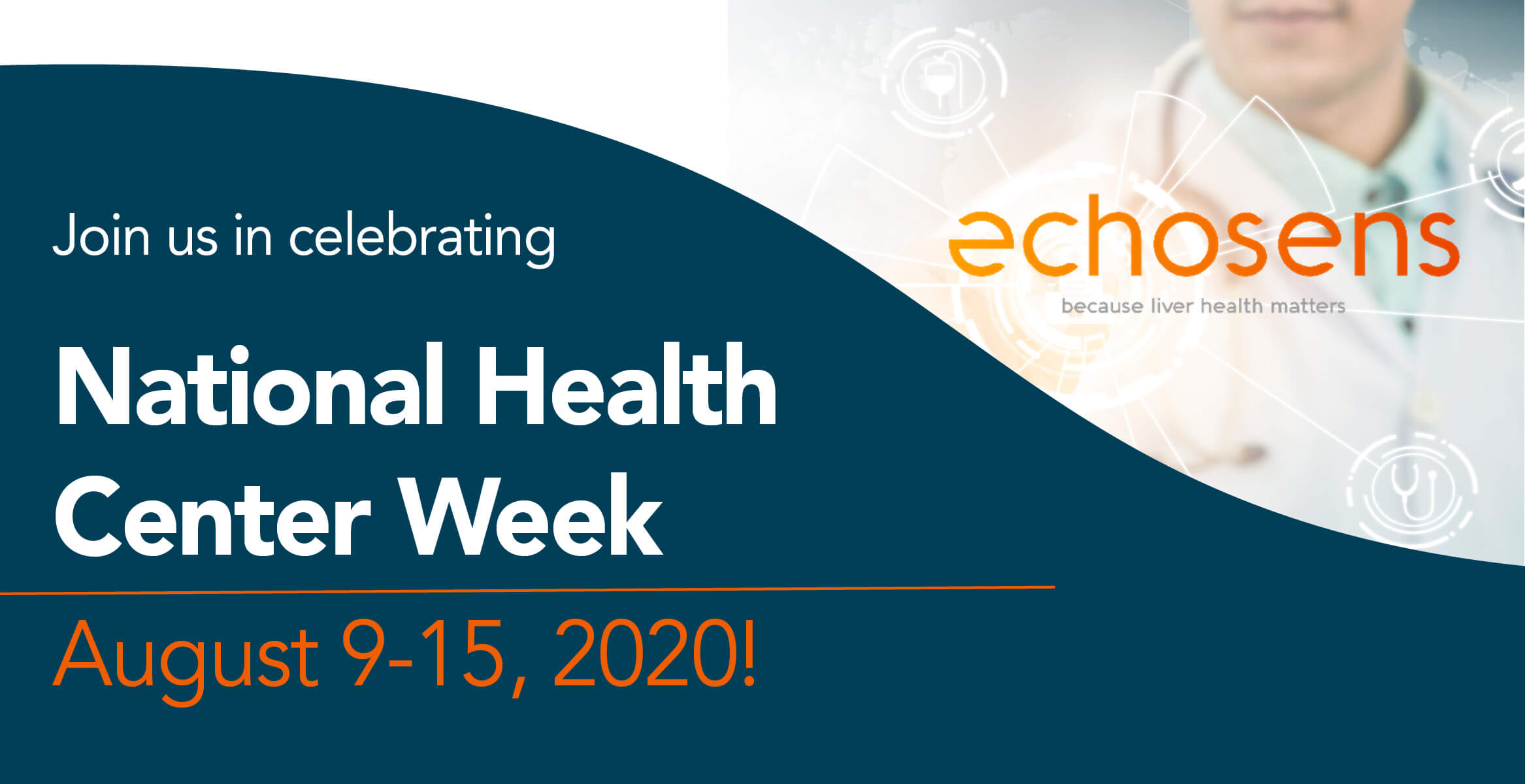In the spirit of National Health Center Week’s 2020 theme, “Community Health Centers: Lighting the Way for Healthier Communities Today and in the Future,” Echosens calls upon physicians at community health centers to not only educate patients about the importance of liver for overall health, but to also proactively seek ways to prevent the progression of non-alcoholic fatty liver disease (NAFLD) or non-alcoholic steatohepatitis (NASH). It’s important to note that the presence of Type 2 diabetes accelerates the progression of liver disease in patients with NAFLD, and NAFLD is an independent predictor and associated with a > 2x increase in developing Type 2 diabetes.
NAFLD is a spectrum of disease characterized by the accumulation of lipids in liver cells not associated with the consumption of alcohol. It causes cellular dysfunction and, in some people, leads to NASH, fibrosis and cirrhosis.
Point-of-care examinations, monitoring and ongoing assessment of liver fat and stiffness as provided by FibroScan, a rapid, non-invasive point of care examination, can identify individuals who are asymptomatic and undiagnosed for liver damage.
Who is at Risk for Liver Disease?
The prevalence and increasing incidence of NAFLD parallels the growth in Type 2 diabetes and obesity. In fact, by 2030, the prevalence is expected to increase to 101 million with NAFLD and 27 million with NASH. Estimates show that 357 million people will have NASH globally by 2030. Because NASH symptoms are not obvious, it is often underdiagnosed and underreported. Federally Qualified Health Care (FQHC) centers and their staff of community-based healthcare providers play a critical role in meeting the primary healthcare needs of underserved populations and ensuring access to care. Part of the epidemiology of chronic diseases that are managed in the FQHC system also include diabetes, hypertension and obesity.
San Diego, CA-based La Maestra, a health center serving low-income and immigrant residents, has seen an alarming rise in liver disease.
“The fact that every liver patient at La Maestra undergoes a FibroScan examination is validation that we have determined elastography with CAP to be an essential part of a patient’s workup, along with a full abdominal ultrasound that includes special liver cancer biomarkers, liver panel that includes liver enzymes and liver function, chemistry panel and a CBC. The FibroScan is a pillar, part of our entry point into assessing our patients liver health.” – Robert Gish, Medical Director, Hepatitis B Foundation
Gish is the medical director of the Hepatitis B Foundation and medical director of the Asian Pacific Health Foundation. He is also an adjunct professor of Medicine at the University of Nevada School of Medicine in Las Vegas, a clinical professor at the University of Nevada Reno School of Medicine, and a clinical professor at the University of California Skaggs School of Pharmacy and Pharmaceutical Sciences. In addition, Gish has joined the consulting faculty at La Maestra in San Diego to establish a liver care program in the FQHC clinic.
Researchers have found NAFLD, hepatitis C, liver cancer and liver transplants are prevalent in 40-80% of people who have Type 2 diabetes and in 30-90% of people who are obese. Being overweight or obese is responsible for about 85% of fatty liver disease.
Monitor Liver Health Today for a Better Future
Diet and exercise interventions are the first line of therapy, with the goal of controlling body weight and cardio-metabolic risk factors related to metabolic syndrome. In the early stages of NAFLD, a healthy diet and weight loss of at least 7% might be sufficient.
Traditional approaches to assessing liver health, such as liver biopsy and advanced radiological imaging, may not be cost effective, nor accessible to the broader at-risk population. FibroScan® offers needed metrics for monitoring changes in liver fat due to lifestyle modification.
During National Health Center Week, we want to raise awareness about the critical need for health centers across the country for treating and monitoring the health of all Americans.
